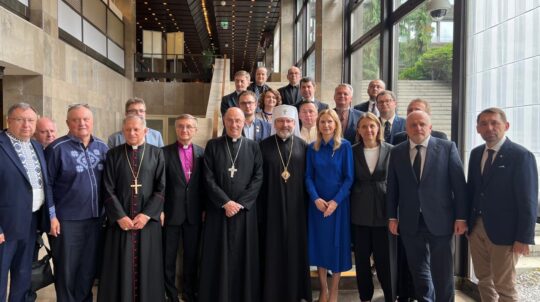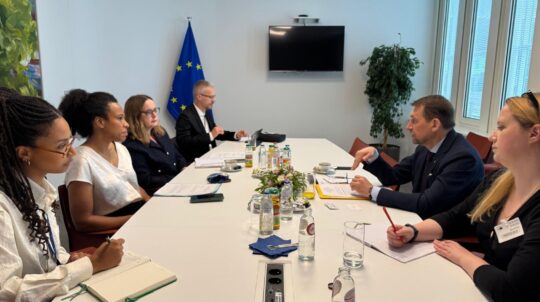On March 27, the 4th International Coordination Meeting for the Safeguarding of Cultural Heritage in Ukraine was held, organized by the Ministry of Culture and Information Policy of Ukraine and UNESCO.
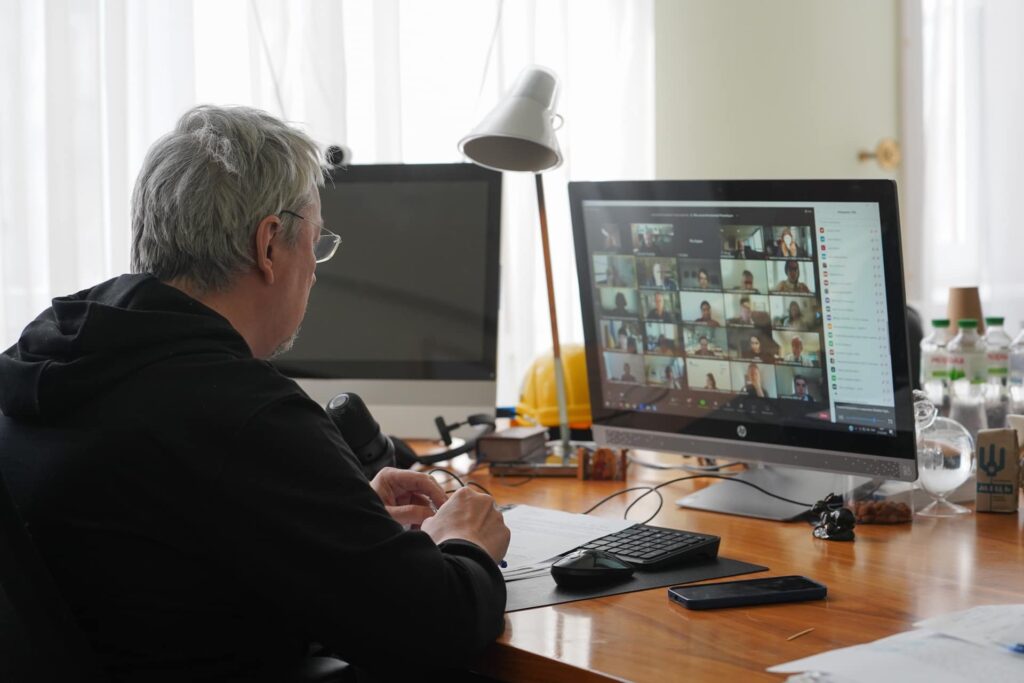
The main task of the meeting is further coordination of actions, exchange of updated information on the state, needs of the sphere of Ukraine’s cultural heritage and drawing up a Roadmap for further joint actions between the MCIP and international partners regarding protection and support to Ukrainian culture.
The meeting was attended by the Minister of Culture and Information Policy of Ukraine Oleksandr Tkachenko, Deputy Ministers Kateryna Chueva, Anastasia Bondar, Galyna Grygorenko and Ernesto Ottone, UNESCO Assistant Director-General for Culture.
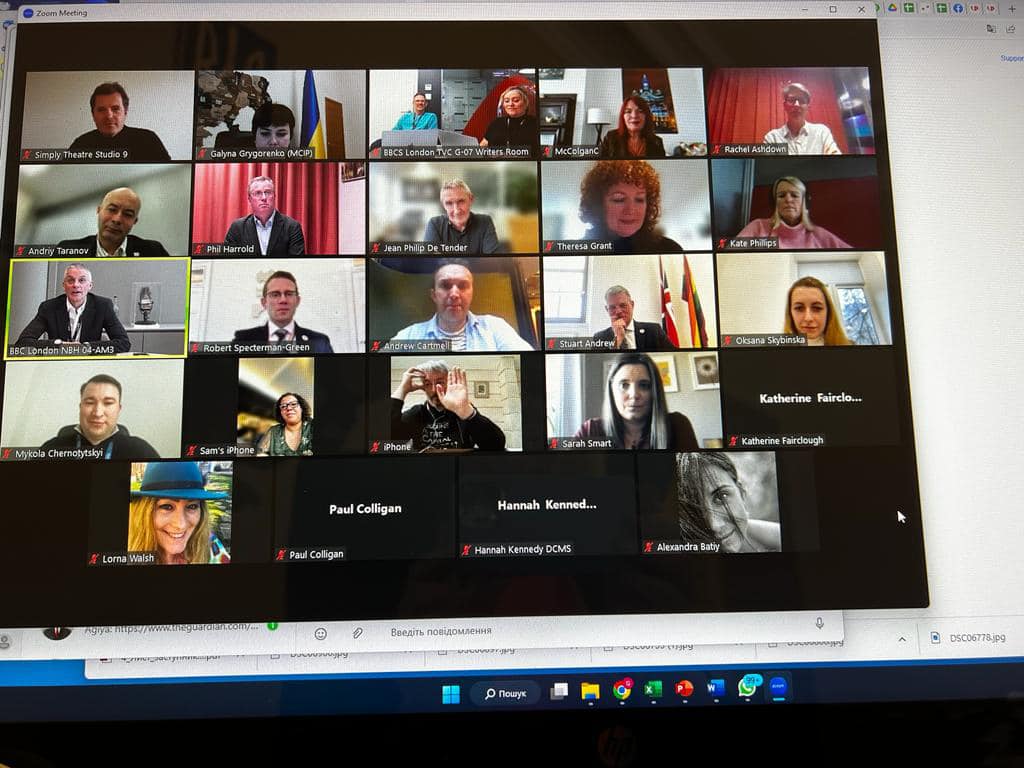
During the meeting, the parties discussed the needs and priorities for 2023 and determined medium-term priorities for the development of the cultural sphere of Ukraine.
The Minister expressed gratitude to all partners in providing support and assistance to Ukraine since the beginning of the full-scale invasion.
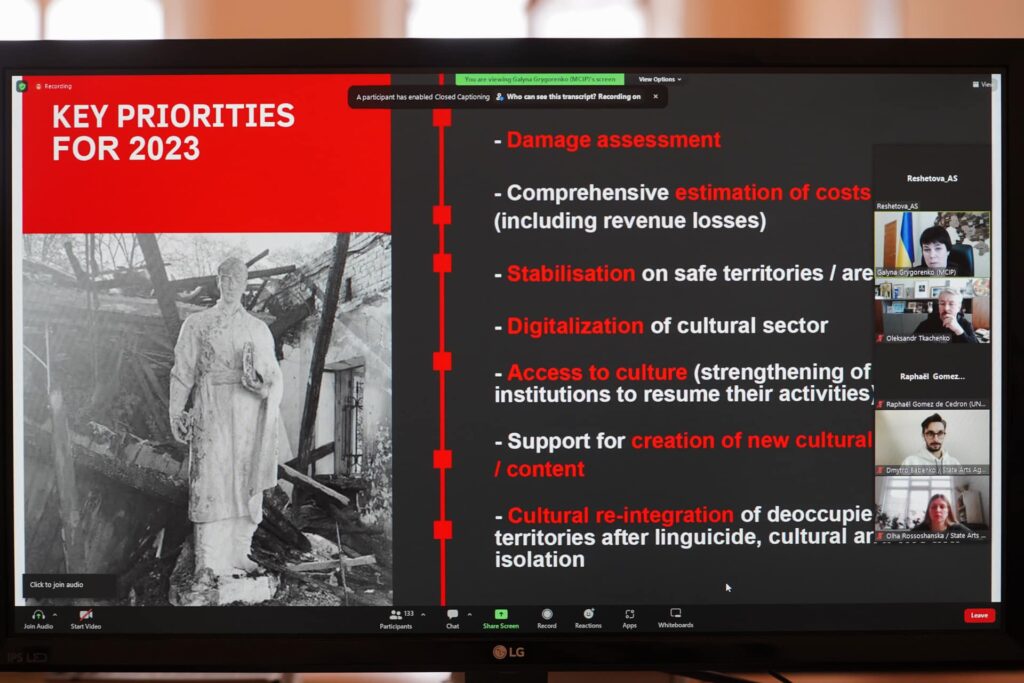
“The role of UNESCO acquired a new significance during the russian aggression. Today is the time when it can demonstrate its effectiveness. Thanks to our cooperation, hundreds of cultural institutions of Ukraine received help from international partners in various forms (equipment, materials, etc.). Tens of millions of dollars in one form or another have been donated or will be donated to the country to support our institutions and objects,” he said.
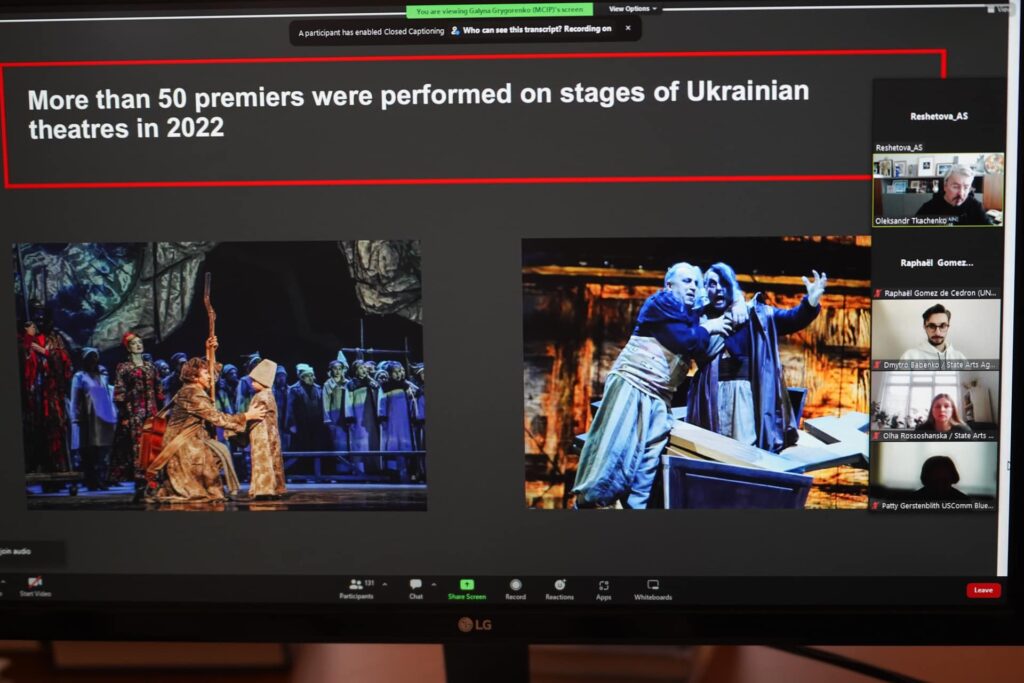
Oleksandr Tkachenko also noted that despite the war, the Ukrainian cultural sphere demonstrates great stability.
“The cultural sphere in Ukraine demonstrates great stability – about 75% of representatives of culture continue to work in Ukraine. Despite all the difficulties, including the blackout, they continue to create cultural products. Consumption of cultural products even increased during the war – according to the results of a survey in February 2023 by the Kyiv International Institute of Sociology 60% of respondents had attended at least one cultural event in the previous year (compared to 50% before the war). This demonstrates that there is a demand for cultural services, because culture is a healing force for people during the war,” Oleksandr Tkachenko said.
According to Deputy Minister Galyna Grygorenko, the priority needs for 2023 are the recording and assessment of destruction, a more comprehensive assessment of losses in the cultural sector, digitalization, access to culture (restarting activities, strengthening the institutional capacity of institutions), support for the creation of present-time Ukrainian content and cultural reintegration of de-occupied territories .
“Recording the destruction and stabilizing heritage sites and cultural infrastructure according to international standards is one of the steps to further restore justice and calculate the reparations owed to us by our northern neighbor. But at the same time, we must continue to promote the activities of cultural institutions and individual artists to create a modern Ukrainian product, especially in the de-occupied territories, after the total cultural and informational vacuum of the russian occupation,” Galina Grygorenko noted.
In her turn, Deputy Minister Anastasia Bondar spoke about the key challenges for the digitalization of the Ukrainian cultural sector.
“Currently, we have a big challenge: the documentation for 12 million museum objects and 120+ thousand objects of immovable cultural heritage must be transferred from paper to digital format. The Ministry also needs to create secure databases: modernize servers and ensure cyber security, and museums and libraries need equipment for the digitization process (laptops, scanners, etc.),” she said.
Deputy Minister Kateryna Chuyeva spoke about the challenges of wartime and the key areas of work related to the integration of the protection of cultural heritage into the national security system, as well as the principles that guide the MCIP while working with international partners on aid projects for Ukraine.
“Lack of experts on the ground, increasing numbers of damage and loss of material cultural heritage as a result of russian aggression, risks of irreversible changes in the preservation of funds due to blackouts and limited resources to ensure normal conditions of preservation, restoration, impossibility of conservation measures in relation to structures located in regions where there are ongoing hostilities, the loss of the traditional character of environments and breaking of ties necessary for the preservation of practices that we call intangible cultural heritage are only part of the challenges, overcoming which requires the consolidated efforts of government structures, international partners, professional communities and civil society,” Kateryna Chueva said.
As a reminder, since February 24 last year, the fourth coordination meeting has been held with the participation of UNESCO and MCIP.
“Today’s coordination meeting is another step in further efforts to involve international partners and Ukrainian organizations to work together on the protection of cultural heritage. Last week, the government of Ukraine, the World Bank, the European Commission and the United Nations jointly presented the results of a rapid damage and needs assessment. UNESCO worked on the Culture section, and we were able to assess the effects of the war on culture based on a careful methodology. It is on the basis of this analysis that we have developed an action plan for Ukraine, and today we will discuss it so that the support we provide is the most effective, meets the most urgent needs and contributes to recovery,” Ernesto Ottone said.
He also emphasized that despite the fact that the war continues, it is very important to think about recovery and reconstruction.
“We are not only talking about cultural heritage, we are talking about museums, institutions, cultural objects, the historical space of cities that have suffered damage. We will support the restoration and protection of culture, and for this we have a lot of tools that we can use,” Ernesto Ottone said.
